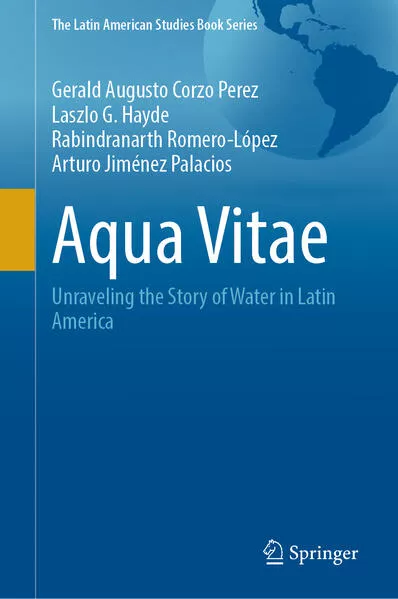
- Publikationen ca: 2
- Fragen & Antworten
Gerald Augusto Corzo Perez
Dr. Gerald A. Corzo is a senior researcher with extensive knowledge on ICT and its applications in water resources problems. He has completed civil engineering with studies in teleinformatics, and he has a Master and PhD in hydroinformatics applications using machine learning models. Gerald has postdoctoral experience using Big Data analytics for Climate Change extremes at Wageningen University. His primary areas of expertise are in hybrid machine learning and process-based modelling. He has worked with spatiotemporal analysis of extreme events under climate change scenarios, and contributed to the area of pattern recognition and tracking of extremes. Gerald produced more than 40 high impact journal publications, various book chapters, journal special issues and book editorials. In 2012 he won the Tison award from the International Association for Hydrological Science (IAHS). He participated invarious EU and international projects and developed a trajectory in spatial statistics. He coordinated the statistics of the Climate change inventory of adaptation and mitigation actions for Latin-America, presented at the World Water Forum in 2012. He also wrote the report 43 on future extremes from the WATCH EU forcing data set and a big data.
Dr. Laszlo G. Hayde is Programme Manager of the Water and Sustainable Development Master Programmes and Senior Lecturer in Irrigation Engineering at IHE Delft. Since 2012 he is Honorary Associate Professor of the Faculty of Civil Engineering, Budapest University of Technology and Economics, and member of the General Directorate of Water Management - Scientific Advisory Council in Hungary since 2019. Dr. Hayde is Vice President Honorary of the International Commission on Irrigation and Drainage (ICID), member of the ICID Working Group on History of Irrigation, Drainage and Flood Control, and Associate Editor of the Journal of ICID: ‘Irrigation and Drainage’, published by John Wiley and Sons Ltd. He is also member of the International Water History Association (IWHA), established and has run courses on ‘History of Hydraulic Engineering’ and ‘World History of Water Management’. In 2020 he received the Major Award for the Advancement of Surface Irrigation of the American Society of Agricultural and Biological Engineers (ASABE).
Dr. Rabindranarth Romero-López is a Civil Engineer with a master’s degree in Engineering in the area of Integrated Water Management, Doctor in Environmental Sciences, with a postdoctoral stay at the École de Technologie Supérieure, in Montreal, Canada. Creator and founder of the Specialized Research Unit in Hydroinformatics and Environmental Technology (HITA). His lines of specialty include hydraulics, hydrology, Water management, climate variability and sustainability. He has given around 50 national and international conferences and has written around 40 publications including articles in national and international magazines, conferences, and books.
Arturo Jimenez Palacios currently is a student of a master program on environmental and ecological economics. He has a bachelor’s in economics and international business. His current line of research is on water resources and environmental economics, valuation of environmental quality, economics of climate change, water resources governance and circular economy. Also, he is a founding member of the Circular Economy Club in Xalapa-Enriquez, Veracruz.
Aqua Vitae
This comprehensive book presents an analytical journey through the relationship between water and Latin American societies, offering an engineering perspective on historical water resource utilization. The book unravels the integral role water has played in the cultural, technological, and socio-economic development of the region, providing a foundational reference for engineers, academics, and researchers.
Aqua Vitae
This comprehensive book presents an analytical journey through the relationship between water and Latin American societies, offering an engineering perspective on historical water resource utilization. The book unravels the integral role water has played in the cultural, technological, and socio-economic development of the region, providing a foundational reference for engineers, academics, and researchers.

